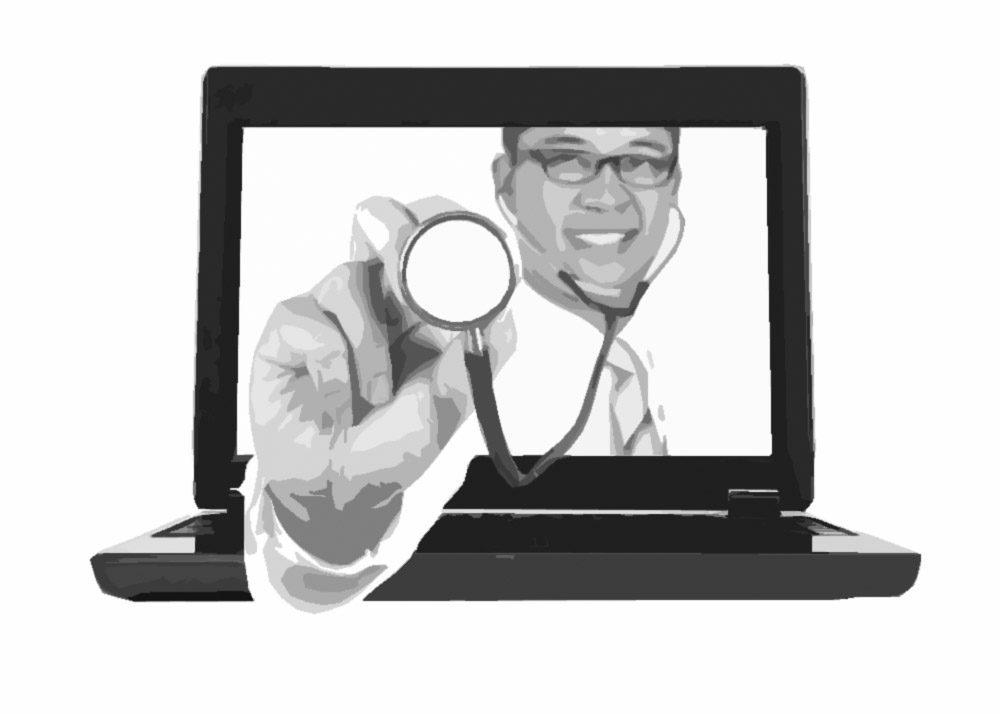What is your appetite for risk with your patient data?
Is your cloud (online web-based) application vulnerable to hackers? Do you even know if the OpenSSL security flaw and bug affected your important data? Are you paying attention to your investment? Or do you even care?
With many moving full steam ahead with cloud-based solutions, recent developments have casted a slight shadow on the security of patient data and how much risk a medical practitioner is willing to take with personal medical information in the cloud.
When you visit the doctor, nurse practitioner or other health professionals there is a trust developed; whereby your confidentiality is respected and observed. As a patient you assume that all efforts are taken to uphold that trust. You assume that your personal medical data is secure from the prying eyes of others. However do you really know if your personal information is safe? It’s amazing to know that so many regular individuals assume, in Canada, that their personal information, located within a Doctor’s office, is 100% safe and secure. But what happens if they find out that there was a breach in security? What happens if a patient came to view results of something extremely important, only available within your EMR or medical software, and your “Internet” connection is down? What do you tell the patient? Are you certain that your medical information is safe?
Read: Cisco and Heartbleed, A Class Action Lawsuit In The Making (Seeking Alpha)
Although the term “online web based billing software” is the new buzz word, not all solutions have to be cloud-based. Many use terms like “bill from anywhere“, or “use any web-browser“, yet there are alternatives, which still allow you to be in control or your data. Many companies will never tell you how often their networks are down. Fear is used scare individuals into thinking that their equipment is safe with their company. “ 99% up-time“, is the standard default line for most online and cloud providers. However, as a medical professional, you assume the risk to your reputation and medical license. Patients believe that “you” and your medical practice are in trust of their personal medical and critical information. We all know, once trust is broken it is often difficult to repair.
Good luck trying to blame your technical problems on others when your cloud application is down (offline), your web-based provider was hacked (losing personal patient information) or even have disappeared with your data (bankrupted). Some comments from online vendors are shown below.
” Sorry about that folks, someone literally drove over our Internet connection this morning and ripped it from the pole. Everything restored.”
“The six-hour outage of Cerner’s network late last month has raised fresh concerns about cloud hosting of patient records.”
“ Target ignored its own alarms—and turned its customers into victims of an epic hack“(Bloomberg Businessweek)
“EBay initially believed user data safe after cyberattack“(Toronto Sun)
If your medical patient records are in the cloud ask yourself the following questions.
- Who actually has your data?
- Where, on planet Earth literally, is your data located?
- Are their cloud servers in Canada? The U.S.? Overseas? Or in an undesirable location in another country?
- If your patient data is in a foreign country what laws govern access to that information?
- Who is actually looking at your entrusted patient data?
- What is the risk and liability to your medical practice?
When choosing a vendor, for your medical software, never assume that the data within their office. Ask questions, first and never assume. Servers could be anywhere.
“If the cloud that hosts your data has servers in a foreign country, the laws of that foreign country may govern your data when stored in that server.”
Think of a more balanced approach to medical file management and health records. There are options to mobility that will not compromise your medical data. Just because it looks cheap, bleeding edge and downright “cool”, does it make it the best solution for you?
You can survive without your Facebook page, even Microsoft Word online for a while, but what about your medical records, lab reports and more; in relation to your office, or hospital? Under some certifications and requirements today EMR is considered a medical device; which must operate and function in a specific manner. If medical records and software were like a pace-maker, how much risk would you take?

Baby Boomers Push Medical Technology to New Heights
Since they came into the world, baby boomers have been changing it. The U.S. Census Bureau defines a baby boomer as someone born between 1946 and 1964 — that makes them 75 million strong. Now that they are reaching retirement age at the rate of three million per year, baby boomers are poised to change the face of healthcare with technological advances that meet their demand for smart, savvy and easy solutions to cope with the issues of aging.
Baby boomers are definitely embracing new technologies. According to a 2012 study by Pew Internet Research, 80 percent of baby boomers use the Internet, and 46 percent use a smartphone and are familiar with downloading apps. Up to 84 percent of them are using that Internet access to search for information on healthcare. As baby boomers age and face more health issues, including the treatment of chronic diseases, technology will be forced to grow and change faster than ever to keep pace.

Surprised? Five of Toronto’s most exclusive PRIVATE medical clinics! #TwoTierHealthcare
Private health care, once taboo, has become a status symbol for those who can afford it. From anti-aging to Alzheimer’s, here are five of the city’s most sought-after clinics.
Read more (By Lauren McKeon).

Data privacy: How safe is your data in the cloud? What about patient medical data?
We are using the cloud more and more. As Internet connections get faster and more reliable, the convenience of having all our data available on all our devices becomes ever more attractive.
However, there are disadvantages to using cloud services, particularly the free of charge ones that still have to make a profit somehow. There are many valid, albeit scary, questions you’ll want to mull over before trusting a third party to keep your data safe and we’ve listed them below.
The answers, as you will discover, in this feature are generally not what you want to hear:
- Privacy – is your data stored or is it being mined for advertising and marketing purposes?
- Reliability – can you be certain that the service you’re using will always be available? What guarantees do you have regarding the safety of your data and is there anything you can do to improve this?
- Security – is your data encrypted? Who has access to the encryption keys? Could your data be hacked or stolen?
- Continuity – Can the cloud provider suspend or cancel your account, possibly even losing all your data, for any reason?
- Performance – Is your Internet connection fast enough to use the services you want without delays?
- Copyright – who owns the content you upload? Can your photos be sold or published without your consent?

Will e-health ever deliver?
After Helmut Braun’s wife died, he turned to the Internet to find someone else to play cards with. Before long, like so many Canadian seniors these days, he’d become something of a keyboard wizard. But when Braun had a heart attack last November, the 85-year-old former barber figured he’d played his last online ace. As he lay in frightening pain in an ambulance, the last thing he could have guessed was that he would soon become a cyber-pioneer. But that’s what happened in the long-term palliative care ward at Baycrest Health Sciences Centre in north Toronto.

